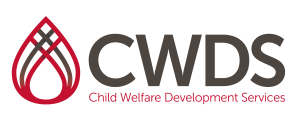CWDS Curriculum
Field Interventions for Youth in Care: Talking with Youth About Addiction
Level: Advanced Practice – Lineworker
Credits: 6
Intended Audience: Supervisors and social workers wishing to gain additional skills and knowledge to intervene in sensitive ways to support youth in understanding and coping with a family member who has an addiction
Intended Objectives:
- Review of Addiction as an illness that affects the entire family.
- Identify the specific effects the Illness of Addiction has on children.
- Identify current Social Work Practices that exacerbate the problem.
- Identify resources that help to ameliorate the problem.
- Demonstrate Social Worker Practices that are effective and helpful.
- Practice skills in communication with children about the illness of addiction by participating in group exercises with colleagues.
Topics Include:
- Definition of addiction and its effects on children, specifically children ages 0-12
- Needs of children who are coming from families with addiction issues
- Skill building activities in intervening with children in out of home care who are coming families with addiction issues
- Identification of strategies and resources for children impacted by a family member who is not in recovery for addiction
- Addressing professional self care in working with children who are impacted by a family member’s addiction
CalSWEC Competencies Addressed:
1.2 Student demonstrates self-awareness and the ability to address and overcome personal bias in assessing and working with clients of diverse backgrounds.
3.1 Student is able to practice basic principles and techniques of interviewing children and families for purposes of assessment, intervention, and service planning.
3.6 Integrating knowledge of individual, family, and cultural dynamics, the student can recognize signs and symptoms of substance abuse in children and adults and assess its impact.
5.1 Student demonstrates understanding of child and youth development, including physical, cognitive, social, and emotional components, and can recognize developmental indicators of abuse or neglect.
Posted In:Substance Abuse



